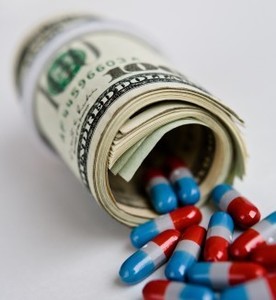Canada-based PlantForm Corporation (PlantForm) announced on 3 March 2016 that it had been awarded a Collaborative Research and Development Grant from the Natural Sciences and Engineering Research Council of Canada (NSERC).
Partnership between PlantForm and Guelph University for biosimilar trastuzumab
Home/Pharma News
|
Posted 01/04/2016
 0
Post your comment
0
Post your comment

The grant was awarded to the research partnership between PlantForm and Dr Mike Dixon, Director of the Controlled Environment Systems Research Facility (CESRF) at the University of Guelph in Ontario.
PlantForm have already genetically modified tobacco plants to create a candidate biosimilar version of Roche’s breast cancer drug Herceptin (trastuzumab) using technology licensed from the University of Guelph, where the technology was developed by Dr J Christopher Hall, the Canada Research Chair in Recombinant Antibody Technology [1]. Using plant cells to produce biosimilars is simpler (plant biology is well-known by scientists) and more cost-effective than producing them in animal cells, which is complicated and expensive.
The grant from NSERC amounts to CA$300,000 as well as cash and in-kind contributions from PlantForm totalling CA$378,000. This will fund a three-year project to examine how environmental growing conditions and a range of other variables affect the yield and quality of therapeutic proteins produced by tobacco plants in PlantForm’s vivoXPRESS biopharmaceutical manufacturing system. The project aims to further optimize the plant-based manufacturing platform, with a specific focus on the partnership’s lead biosimilar candidate trastuzumab.
Trastuzumab is a monoclonal antibody that interferes with the human epidermal growth factor receptor 2 (HER2)/neu receptor. In some cancers, notably certain types of breast cancer, HER2 is overexpressed, and causes cancer cells to reproduce uncontrollably. Trastuzumab is therefore used to treat certain breast cancers.
The originator biological, Herceptin, had 2014 worldwide sales of CHF 6.3 billion (US$6.2 billion).
Plantform also made an agreement with Brazil-based biopharmaceuticals technology platform PharmaPraxis in June 2014 to develop a biosimilar of Roche’s blockbuster cancer drug Avastin (bevacizumab) [2].
Related article
References
1. GaBI Online - Generics and Biosimilars Initiative. Biosimilar trastuzumab made in tobacco plants [www.gabionline.net]. Mol, Belgium: Pro Pharma Communications International; [cited 2016 Apr 1]. Available from: www.gabionline.net/Biosimilars/News/Biosimilar-trastuzumab-made-in-tobacco-plants
2. GaBI Online - Generics and Biosimilars Initiative. More biosimilars collaborations on the cards [www.gabionline.net]. Mol, Belgium: Pro Pharma Communications International; [cited 2016 Apr 1]. Available from: www.gabionline.net/Biosimilars/News/More-biosimilars-collaborations-on-the-cards
Permission granted to reproduce for personal and non-commercial use only. All other reproduction, copy or reprinting of all or part of any ‘Content’ found on this website is strictly prohibited without the prior consent of the publisher. Contact the publisher to obtain permission before redistributing.
Copyright – Unless otherwise stated all contents of this website are © 2016 Pro Pharma Communications International. All Rights Reserved.
Guidelines
US guidance to remove biosimilar comparative efficacy studies
New guidance for biologicals in Pakistan and Hong Kong’s independent drug regulatory authority
Policies & Legislation
Brazil and Mexico forge alliance to streamline medical approvals and boost production
EU accepts results from FDA GMP inspections for sites outside the US
Formycon signs new aflibercept biosimilar pacts and launches ranivisio in Europe

Home/Pharma News Posted 13/11/2025
Bio-Thera and Stada expand biosimilars alliance to include tocilizumab

Home/Pharma News Posted 20/10/2025
The best selling biotechnology drugs of 2008: the next biosimilars targets








Post your comment